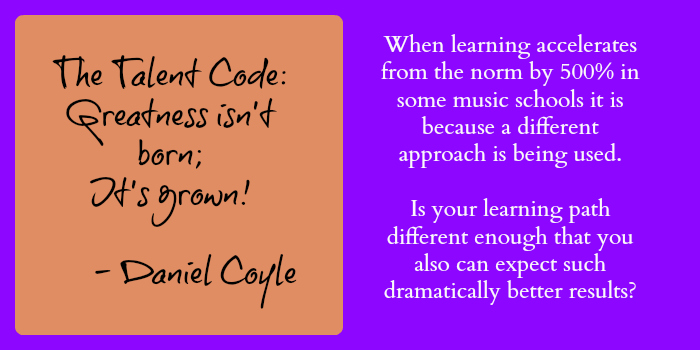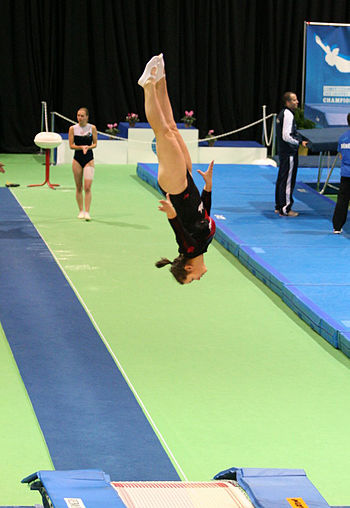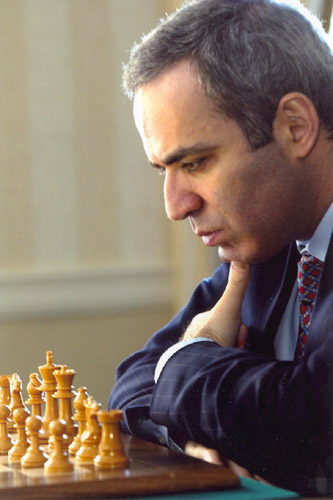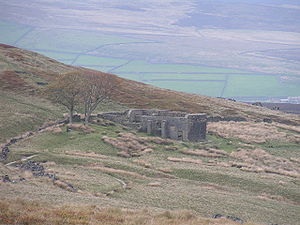Daniel Coyle says the following in this excerpt from “The Talent Code: Greatness Isn’t Born. It’s Grown. Here’s How.” (p. 84 in Kindle Edition):
in seven weeks, most students will learn a year’s worth of material, an increase of about 500 percent in learning speed. Among the students, this acceleration is well known but only dimly understood…
These feats are routine…
The goal is always the same: to break a skill into its component pieces (circuits), memorize those pieces individually, then link them together in progressively larger groupings…
Through practice, they had developed something more important than mere skill; they’d grown a detailed conceptual understanding that allowed them to control and adapt their performance, to fix problems, and to customize their circuits to new situations. They were thinking in chunks and had built those chunks into a private language of skill…
Being self-aware of how one is learning accelerates talent growth. Good coaches and good mentors can help teach awareness. And parents, especially parents, can cultivate that awareness at an early age. Awareness can also be deliberately developed by the young person himself as he gets older, but why leave it for him to find out on his own at a much later age?
If your child becomes self-aware about how and why he is able to learn, he can then accelerate his progress in his chosen area of talent. He learns how to decompose the actual learning process itself so that he doesn’t have to keep increasing the sheer number of brute working hours. By understanding how to change strategy or technique along the way, you will be giving your young person the mental tools to take control of the direction and speed of his learning.
Parents, think carefully: are you actively encouraging that mindset or are you letting the outline of a textbook dictate the best strategy for making progress?
Make acceleration feats routine.







